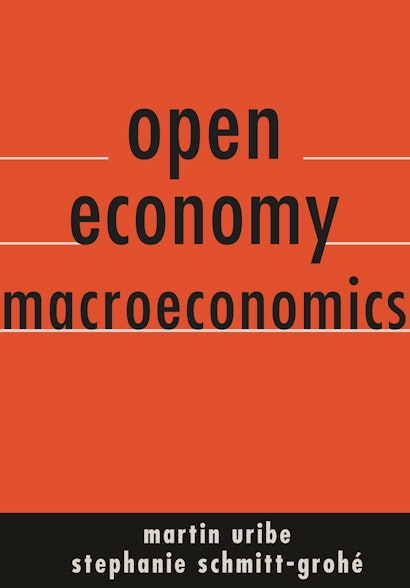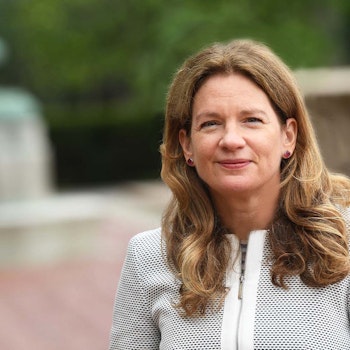Combining theoretical models and data in ways unimaginable just a few years ago, open economy macroeconomics has experienced enormous growth over the past several decades. This rigorous and self-contained textbook brings graduate students, scholars, and policymakers to the research frontier and provides the tools and context necessary for new research and policy proposals.
Martín Uribe and Stephanie Schmitt-Grohé factor in the discipline’s latest developments, including major theoretical advances in incorporating financial and nominal frictions into microfounded dynamic models of the open economy, the availability of macro- and microdata for emerging and developed countries, and a revolution in the tools available to simulate and estimate dynamic stochastic models. The authors begin with a canonical general equilibrium model of an open economy and then build levels of complexity through the coverage of important topics such as international business-cycle analysis, financial frictions as drivers and transmitters of business cycles and global crises, sovereign default, pecuniary externalities, involuntary unemployment, optimal macroprudential policy, and the role of nominal rigidities in shaping optimal exchange-rate policy.
Based on courses taught at several universities, Open Economy Macroeconomics is an essential resource for students, researchers, and practitioners.
- Detailed exploration of international business-cycle analysis
- Coverage of financial frictions as drivers and transmitters of business cycles and global crises
- Extensive investigation of nominal rigidities and their role in shaping optimal exchange-rate policy
- Other topics include fixed exchange-rate regimes, involuntary unemployment, optimal macroprudential policy, and sovereign default and debt sustainability
- Chapters include exercises and replication codes
Martín Uribe is professor of economics at Columbia University and a research associate at the National Bureau of Economic Research. He is a coeditor of the Journal of International Economics. Stephanie Schmitt-Grohé is professor of economics at Columbia University, a research associate at the National Bureau of Economic Research, and a research fellow at the Center for Economic and Policy Research.
"The authors succeed in intermarrying data and theoretical models to explain ongoing macroeconomic phenomena in real life. As a textbook on macroeconomics, this work is well written with the graduate student in mind. Similarly, others who are also involved in the act of macroeconomic policy formulations will find the contents of this book useful."—Choice
"This textbook does an excellent job of guiding students from introductory models in dynamic open economy macroeconomics to the frontiers of research. It integrates empirical exercises and computational solution methods and is a perfect text for a modern PhD course."—Charles Engel, University of Wisconsin-Madison
"Simply put, Open Economy Macroeconomics is a masterpiece. It provides a unique mix of empirical foundations, theoretical analysis, and quantitative examination on all the essential topics in this rich and complex field. The materials are complemented by user-friendly data sets and computer codes that set a new standard for textbooks in this discipline. This pathbreaking textbook will become required reading in graduate-level courses on international macroeconomics."—Enrique Mendoza, University of Pennsylvania
"Uribe and Schmitt-Grohé's textbook provides a rigorous introduction to open economy models of economic fluctuations. The authors' clear account of the tools and methods involved in the analysis of those models will be highly welcome by students and researchers alike, and will make this book a required reference in any serious graduate open economy macro course."—Jordi Galí, CREI and Universitat Pompeu Fabra
"This graduate-level textbook offers a wide menu of up-to-date empirical techniques and simple general equilibrium models focused on international business cycles. The presentation is highly pedagogical and user-friendly, and the link between theory and econometrics is never lost. It will be an indispensable resource for graduate and advanced undergraduate courses in open economy macroeconomics, and I strongly recommend it for all who want to keep abreast of current research in this field."—Guillermo Calvo, Columbia University



